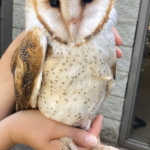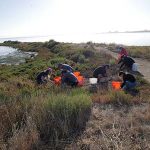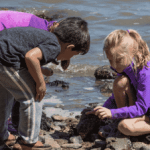Blog
Conservation Conversations: The Beauty of Natural Pest Control
By Kendra Jabin, CuriOdyssey Vet Tech, and Carmen Sepetka, Associate Director of Conservation
Many would be surprised to learn that studies have determined that rodent populations are actually increasing with the use of chemical rodenticides. Research has shown that the non-target, or unintended, animal species that prey on the sick rats are being negatively affected at a higher rate than that of the rodents. But why is this? Rats and mice have a high reproduction rate, while the predators who naturally feed on them reproduce much slower and in lower numbers. While these predators continue to feed on the poisoned rodents, they too become fatally ill. Ingestion of rodenticides lowers the immune system of organisms, making them more susceptible to diseases. This becomes a cycle in which predator populations decline due to rodenticides, while rodent populations remain nearly unaffected and even begin to increase due to the lack of predators that are available to regulate the rodent population.

Predators, like our own Dylan the gray fox, are an example of natural pest control. Rodenticides have been detected in many fox species, including California’s endangered San Joaquin kit fox. Foxes, bobcats, coyotes, hawks, owls, eagles, and snakes all rely on healthy rodents to thrive, and in turn, these animals help keep the rat, mouse, and gopher populations under control.
There are many ways you can help predators flourish while keeping rodents away from your home, including:
- supporting open space initiatives
- creating a wildlife-friendly yard
- installing owl boxes on your property
- not allowing pet food or bird seed to accumulate in your yard, and
- eliminating food waste around your home and neighborhood.
Remember to proactively prevent rodents in the home by repairing rodent-sized entryways with the installation of tight-fitting covers on crawl space entrances. Use wire mesh or hardware cloth under porches and on vents, elevate chicken coops, cut branches back by three feet away from the roof, use lids that close tightly on garbage cans and dumpsters, and seal any openings the size of a dime or larger.
Join the CuriOdyssey Community
LOCATION
1651 Coyote Point Drive
San Mateo, CA 94401
Ohlone Land Acknowledgement
650-342-7755
info@curiodyssey.org
CuriOdyssey is a 501(c)(3) non-profit, Tax ID 94-1262434





